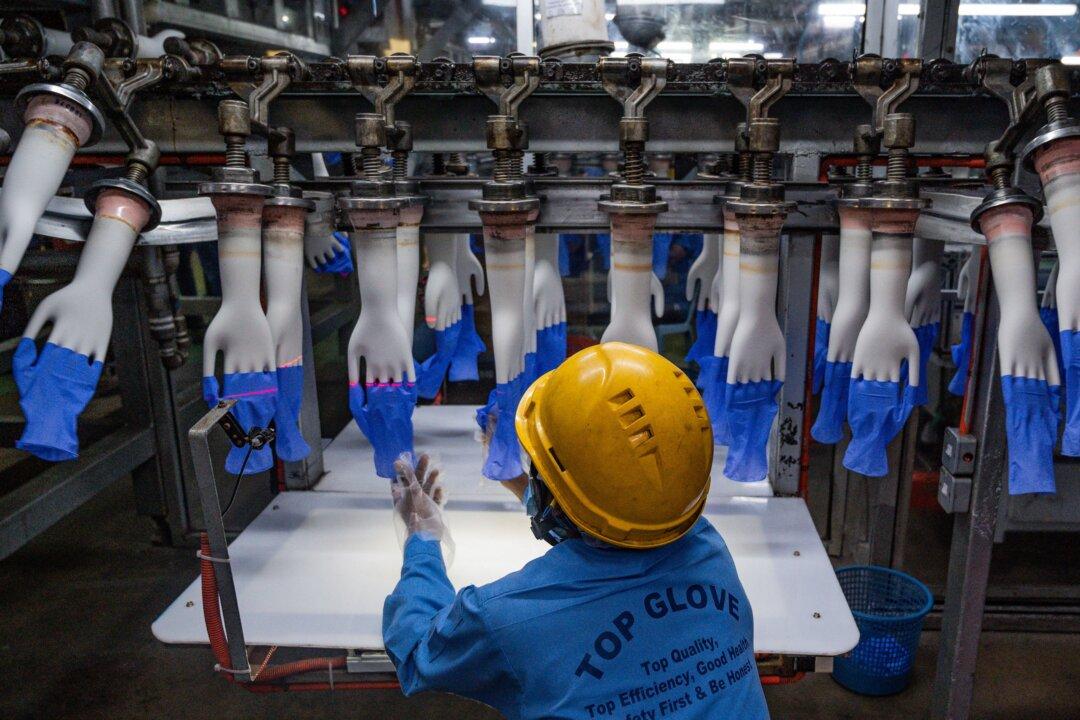The world’s largest maker of latex gloves, Top Glove, will temporarily shut down more than half of its factories in stages after more than 2,000 employees tested positive for COVID-19, the disease caused by the CCP virus.
Malaysia’s Top Glove will close 28 of its 41 plants after 2,453 workers tested positive for the virus, from 5,767 screened, Director-General of Health Noor Hisham Abdullah said Monday.





